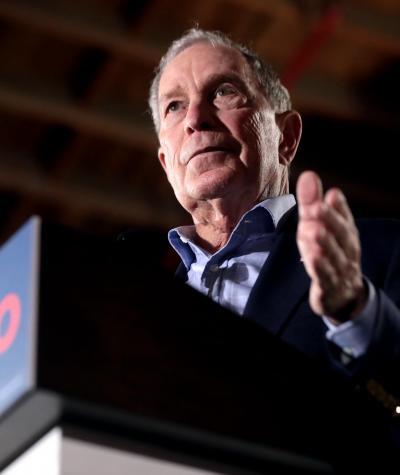Michael Bloomberg poured nearly $1 billion into his run for the Democratic presidential nomination and lost. But there were a few winners from his ill-fated campaign: television stations in early primary states, a handful of political consultants, and the Democratic National Committee (DNC).
Despite laws capping contributions to the DNC at $35,500 per individual Bloomberg transferred $18 million to the Democratic Party in March. The $18 million transfer is permissible because the money formally came from Bloomberg’s campaign—which he entirely funded—rather than directly from his personal account.
Federal law allows candidates to transfer unlimited amounts to party committees like the DNC. Federal law also allows candidates to spend unlimited amounts of money supporting their own campaigns. But never before have those two provisions been used together in quite this way and to such a degree.
This apparently accidental loophole is one that the Federal Election Commission (FEC) and Congress both have the power to close, and they should.
Federal law states that a “contribution accepted by a candidate” may be transferred without limit to the party, but the law does not say that personal funds used in a campaign are necessarily “contributions.”
Instead, FEC regulations only state that a candidate “may make unlimited expenditures from personal funds.” This regulation is consistent with the Supreme Court’s 1976 decision in Buckley v. Valeo, which held that a candidate may make unlimited expenditures using their own money.
So why is a candidate’s personal spending on their own campaign, which is otherwise an “expenditure,” treated as a “contribution”? Because the FEC has advised candidates to disclose personal funds in the “contribution” section of campaign finance reports. This is reasonable guidance, since requiring otherwise would throw off campaign ledgers: the books would not balance if the campaign only reported candidate-funded “expenditures” without disclosing any corresponding “contributions.”
But what is effectively an FEC reporting practice has created a big loophole in the contribution limits. It means that personal funds transferred to a candidate’s own campaign may then be transferred without limit to a political party. This makes it easy for a self-funded former candidate to buy substantial political influence and accrue a degree of political power even without getting elected to office.
Political contributions are capped in order to protect from corruption. Candidates may use their personal wealth on their own campaigns, since candidates generally cannot corrupt themselves. Yet there is little reason to believe that an individual’s ability to buy excessive influence is limited simply because they became a candidate before giving millions in party contributions.
Recent polls indicate that 69% of voters across party lines see the campaign finance system as "overwhelmingly rigged in favor of the wealthy, corporations and special interests.” This gaping loophole—which allows a billionaire to direct $18 million to a political party— only contributes to that view.
Candidates may have a constitutional right to spend unlimited amounts on their own campaign, but they do not have the right to give unlimited contributions to national party committees.
The Bloomberg loophole need not remain open. When the FEC’s quorum is restored, the agency should open a rulemaking to clarify that a candidate’s personal funds held in a campaign account are not subject to the unlimited party transfer provision. If the FEC won’t act, then Congress should.
